[ANITA upward cosmic ray-like shower - preliminary data and analysis compilation; some content adapted from Twitter thread of my sole participation]
https://twitter.com/MyDoctorSteve/status/1082422361377390593
https://physicsworld.com/a/our-universe-has-antimatter-partner-on-the-other-side-of-the-big-bang-say-physicists/
ANITA upward candidate sterile neutrino claims have much to bear: various Antarctic ground magnetometer stations show unusual quasiperiodic field fluctuations preceding the ANITA events by his and extending symmetrically surrounding time of arrivals, commencing hours prior to and following triggers, but at greatest coherence at time of ANITA-III claim. Earth may also be a source of high-energy cosmic rays.
#ANITA #neutrinos #BSM #sterileneutrino
December 17, 2014 M8.7 flare-CME is the subject of a paper that recognized quasiperiodic behavior prior and during the events:
Magnetic quasi-separatrix layers (QSLs) at 1AU evident w/double bifurcation of CME 0055 on 2014-1220 - fast mode EUV? (as CME 0055 is a Halo event at max velocity)
# CME| t0 (UTC) |minv|maxv (km/s)
https://twitter.com/MyDoctorSteve/status/1082422361377390593
https://physicsworld.com/a/our-universe-has-antimatter-partner-on-the-other-side-of-the-big-bang-say-physicists/
ANITA upward candidate sterile neutrino claims have much to bear: various Antarctic ground magnetometer stations show unusual quasiperiodic field fluctuations preceding the ANITA events by his and extending symmetrically surrounding time of arrivals, commencing hours prior to and following triggers, but at greatest coherence at time of ANITA-III claim. Earth may also be a source of high-energy cosmic rays.
#ANITA #neutrinos #BSM #sterileneutrino
December 17, 2014 M8.7 flare-CME is the subject of a paper that recognized quasiperiodic behavior prior and during the events:
Quasi-periodic Pulsations before and during a Solar Flare in AR 12242
Magnetic quasi-separatrix layers (QSLs) at 1AU evident w/double bifurcation of CME 0055 on 2014-1220 - fast mode EUV? (as CME 0055 is a Halo event at max velocity)
# CME| t0 (UTC) |minv|maxv (km/s)
0055|12/17/14 4:12|262|637
https://iswa.ccmc.gsfc.nasa.gov/IswaSystemWebApp/index.jsp?i_1=39&l_1=7&t_1=271&w_1=500&h_1=333&s_1=2012-03-07%2018:12:24.0_0_10_3&i_2=41&l_2=506&t_2=270&w_2=542&h_2=506&s_2=2012-03-07%2005:56:24.0_0_10_3


#BSM #neutrino Upward cosmic ray-like event #ANITA-III #15717147, 2014/12/20 at 08:33:22.5 UTC; X-ray flux/#haloCME/neutron v[n0τ|AU] cyclotron correspondence - converging co-rotating dual-CME interactions; neutron [sic] v[n0τ|AU]:c iterated in neutrino, electron, proton values:


Antarctic magnetometers DMC, VOS, PG2, PG3 field ||dbn||, ||dbz||:
SuperMAG Antarctic magnetometer data for 2020/1219-2020/1220

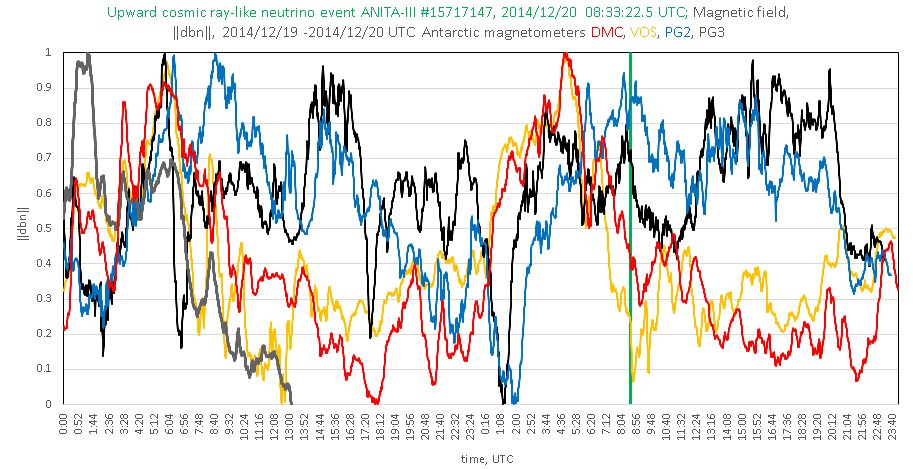
2014-1220 X2.69 (formerly classified as X1.88) flare initiated/peaked 00:11/00:28; shear component aligned w/tilt angle of magnetosphere, which may have affected scattering - all during 2014-2017 halo CME arrival. Interplanetary shock sequence followed [beginning 2014-1222, after anomalous ~3 weeks of none].

https://iswa.ccmc.gsfc.nasa.gov/IswaSystemWebApp/index.jsp?i_1=39&l_1=7&t_1=271&w_1=500&h_1=333&s_1=2012-03-07%2018:12:24.0_0_10_3&i_2=41&l_2=506&t_2=270&w_2=542&h_2=506&s_2=2012-03-07%2005:56:24.0_0_10_3


#BSM #neutrino Upward cosmic ray-like event #ANITA-III #15717147, 2014/12/20 at 08:33:22.5 UTC; X-ray flux/#haloCME/neutron v[n0τ|AU] cyclotron correspondence - converging co-rotating dual-CME interactions; neutron [sic] v[n0τ|AU]:c iterated in neutrino, electron, proton values:


Antarctic magnetometers DMC, VOS, PG2, PG3 field ||dbn||, ||dbz||:
SuperMAG Antarctic magnetometer data for 2020/1219-2020/1220


#BSM #neutrino upward cosmic ray-like event #ANITA-III #15717147, 2014/12/20 at 08:33:22.5 UTC; variance, VMR for Antarctic magnetometers DMC, VOS, PG2, PG3 (dbn):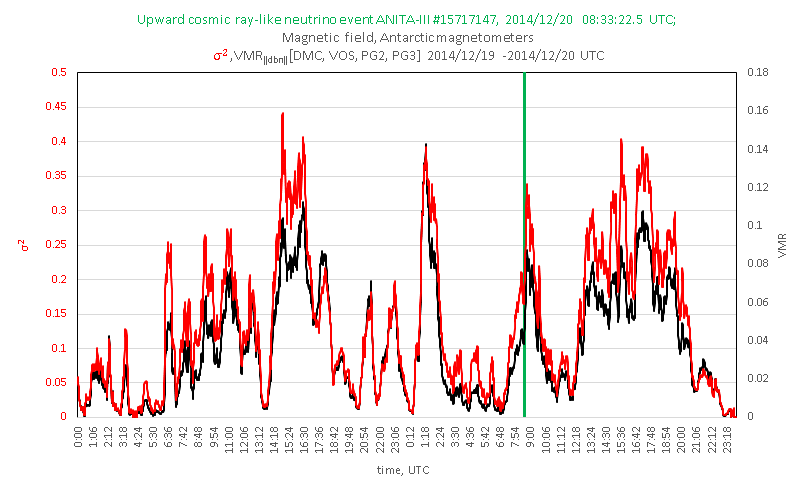

2014-1220 X2.69 (formerly classified as X1.88) flare initiated/peaked 00:11/00:28; shear component aligned w/tilt angle of magnetosphere, which may have affected scattering - all during 2014-2017 halo CME arrival. Interplanetary shock sequence followed [beginning 2014-1222, after anomalous ~3 weeks of none].
https://iswa.ccmc.gsfc.nasa.gov/IswaSystemWebApp/index.jsp?i_1=39&l_1=7&t_1=271&w_1=500&h_1=333&s_1=2012-03-07%2018:12:24.0_0_10_3&i_2=41&l_2=506&t_2=270&w_2=542&h_2=506&s_2=2012-03-07%2005:56:24.0_0_10_3
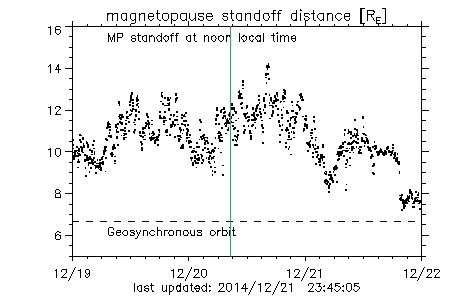
http://www.srl.caltech.edu/ACE/ASC/DATA/level3/mag/magsummary.cgi?LATEST=0&YEAR=2006&MONTH=12&DAY=28&DOY=-1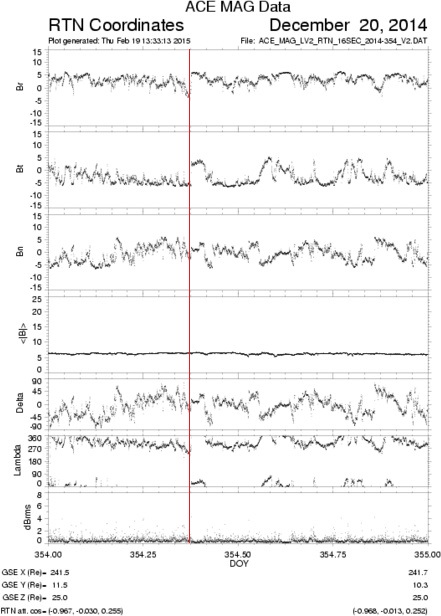
http://www.srl.caltech.edu/ACE/ASC/DATA/level3/mag/ACESpec.cgi?LATEST=1
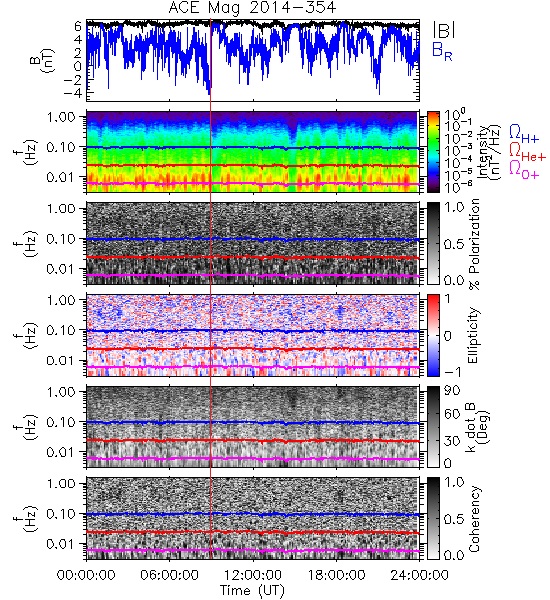
http://ipshocks.fi/database?date_low=2014-12-01&date_high=2015-01-31&time_low=00%3A00&time_high=23%3A59&magnetic_field_ratio_low=1.20&magnetic_field_ratio_high=7.47&speed_jump_low=20.0&speed_jump_high=516.0&proton_density_ratio_low=1.20&proton_density_ratio_high=19.14&proton_temperature_ratio_low=0.83&proton_temperature_ratio_high=40.11&magnetosonic_mach_number_low=0.0&magnetosonic_mach_number_high=11.7&shock_speed_low=0.0&shock_speed_high=1679.0&submit=&sort_by=datetime&sort_dir=desc
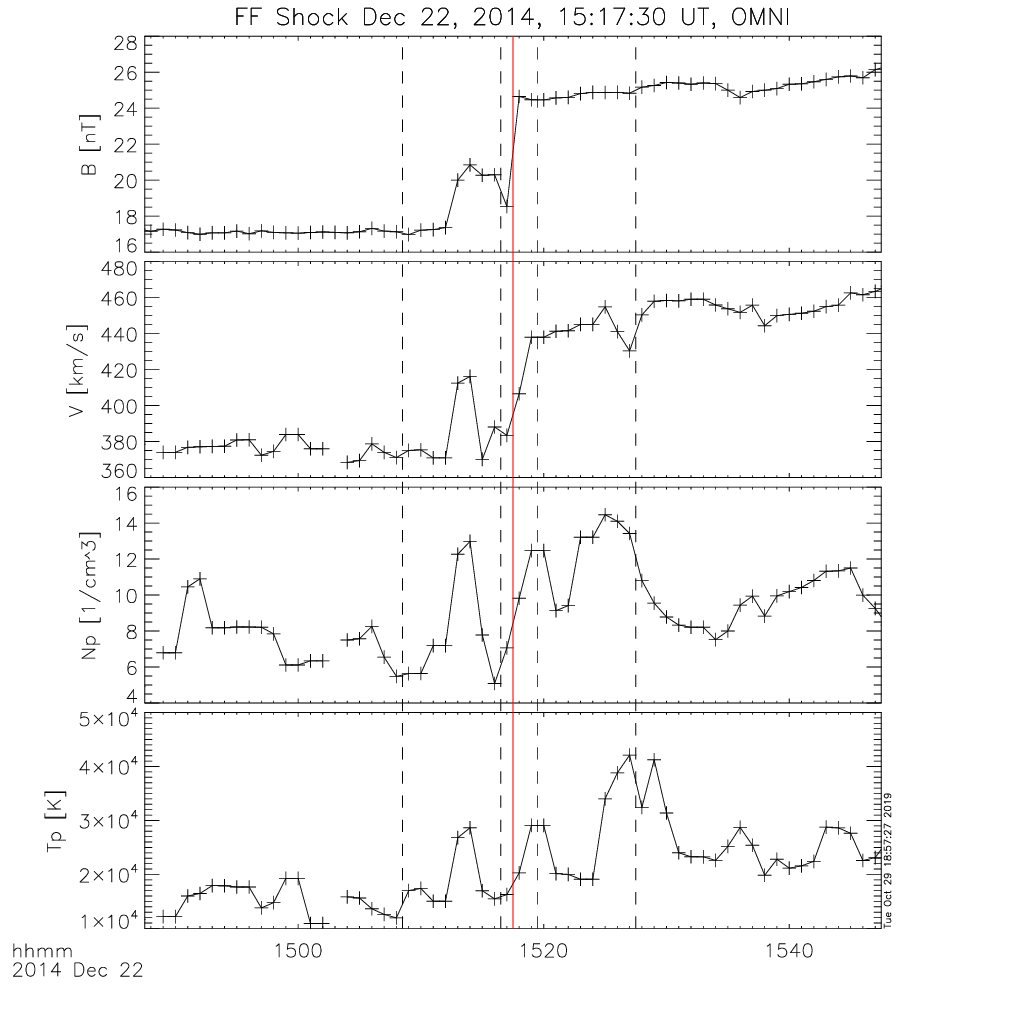
Region 12242 peak flux X2.69 (formerly classified as X1.88) flare on 2014-1220 at 00:28 UTC presaged a very long attenuation ramp, with secondary pulse directly at time of ANITA BSM #neutrino event. Solar filaments and quasiperiodic δ-group coherence of extraordinary pole-pole scale co-occurred:

http://www.srl.caltech.edu/ACE/ASC/DATA/level3/mag/magsummary.cgi?LATEST=0&YEAR=2006&MONTH=12&DAY=28&DOY=-1

http://www.srl.caltech.edu/ACE/ASC/DATA/level3/mag/ACESpec.cgi?LATEST=1

http://ipshocks.fi/database?date_low=2014-12-01&date_high=2015-01-31&time_low=00%3A00&time_high=23%3A59&magnetic_field_ratio_low=1.20&magnetic_field_ratio_high=7.47&speed_jump_low=20.0&speed_jump_high=516.0&proton_density_ratio_low=1.20&proton_density_ratio_high=19.14&proton_temperature_ratio_low=0.83&proton_temperature_ratio_high=40.11&magnetosonic_mach_number_low=0.0&magnetosonic_mach_number_high=11.7&shock_speed_low=0.0&shock_speed_high=1679.0&submit=&sort_by=datetime&sort_dir=desc

Region 12242 peak flux X2.69 (formerly classified as X1.88) flare on 2014-1220 at 00:28 UTC presaged a very long attenuation ramp, with secondary pulse directly at time of ANITA BSM #neutrino event. Solar filaments and quasiperiodic δ-group coherence of extraordinary pole-pole scale co-occurred:
#ANITA #BSM #neutrino region 12242 X2.69 (formerly classified as X1.88) flare, 2014-1220, velocity field correlated with interaction from 2014-1217 region 12242 M8.75 X-ray flare at 1 AU - singular shocks/mirror points/quasi-separatrix layers (QSLs) must be considered for transient initiation/error.

http://sidc.oma.be/cactus/catalog/LASCO/2_5_0/qkl/2014/12/CME0074/CME.html
http://sidc.oma.be/cactus/catalog/LASCO/2_5_0/qkl/2014/12/CME0074/CME.mp4

http://sidc.oma.be/cactus/catalog/LASCO/2_5_0/qkl/2014/12/CME0074/CME.mp4

ANITA-I event 2006-1228 00:33:20 correlated w/magnetospheric driving by solar wind (WIND IMF-solar wind). IMF-ground coupling around #ANITA-I upward #neutrino event 2006-1228 00:33:20 UTC
Antarctic magnetometers:
SBA‖Edb‖, DRV‖Edb‖
WIND interplanetary magnetic field 2006-12-27,28 UTC (propagated to bow shock):
mk[‖Bx‖,‖By‖,‖ Bz ‖,‖Vz ‖,‖Np ‖],
σ2k [‖Bx‖,‖By‖,‖ Bz ‖,‖Vz ‖,‖Np ‖]







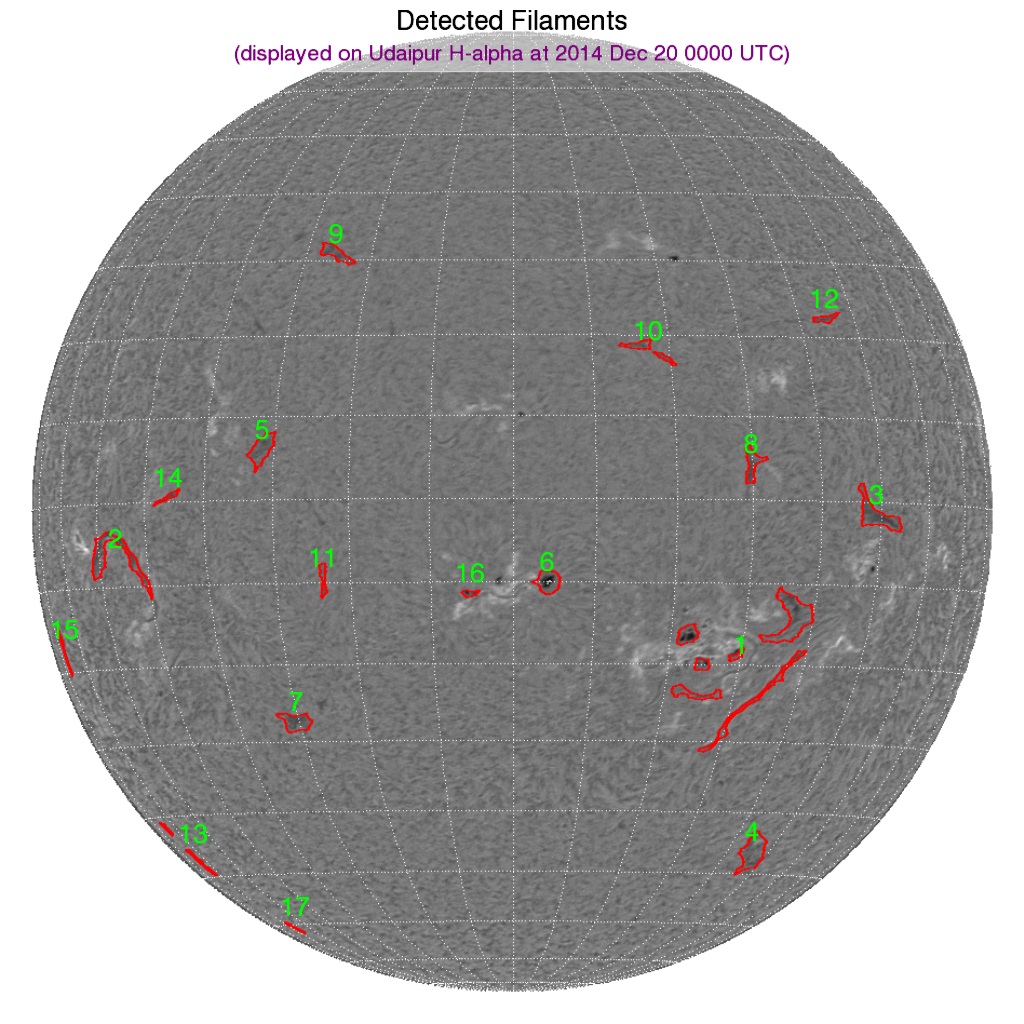
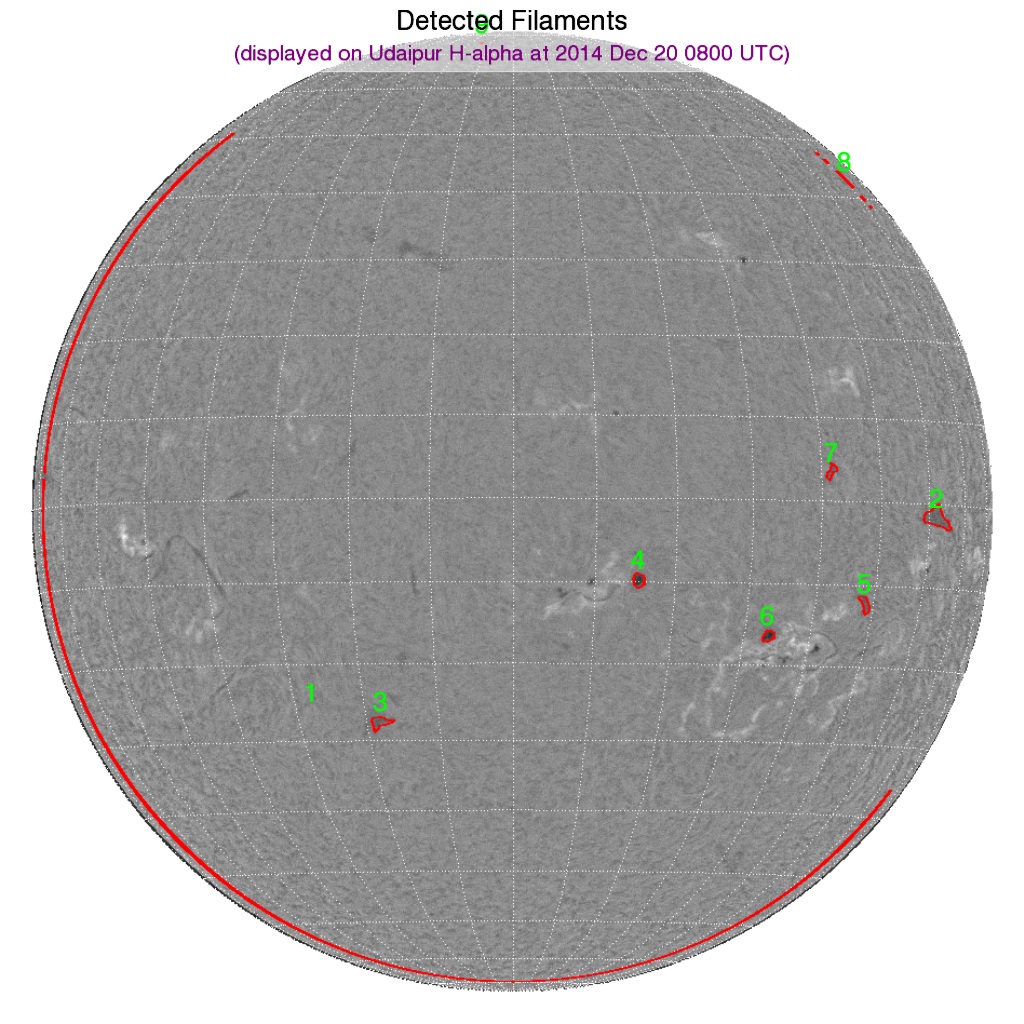
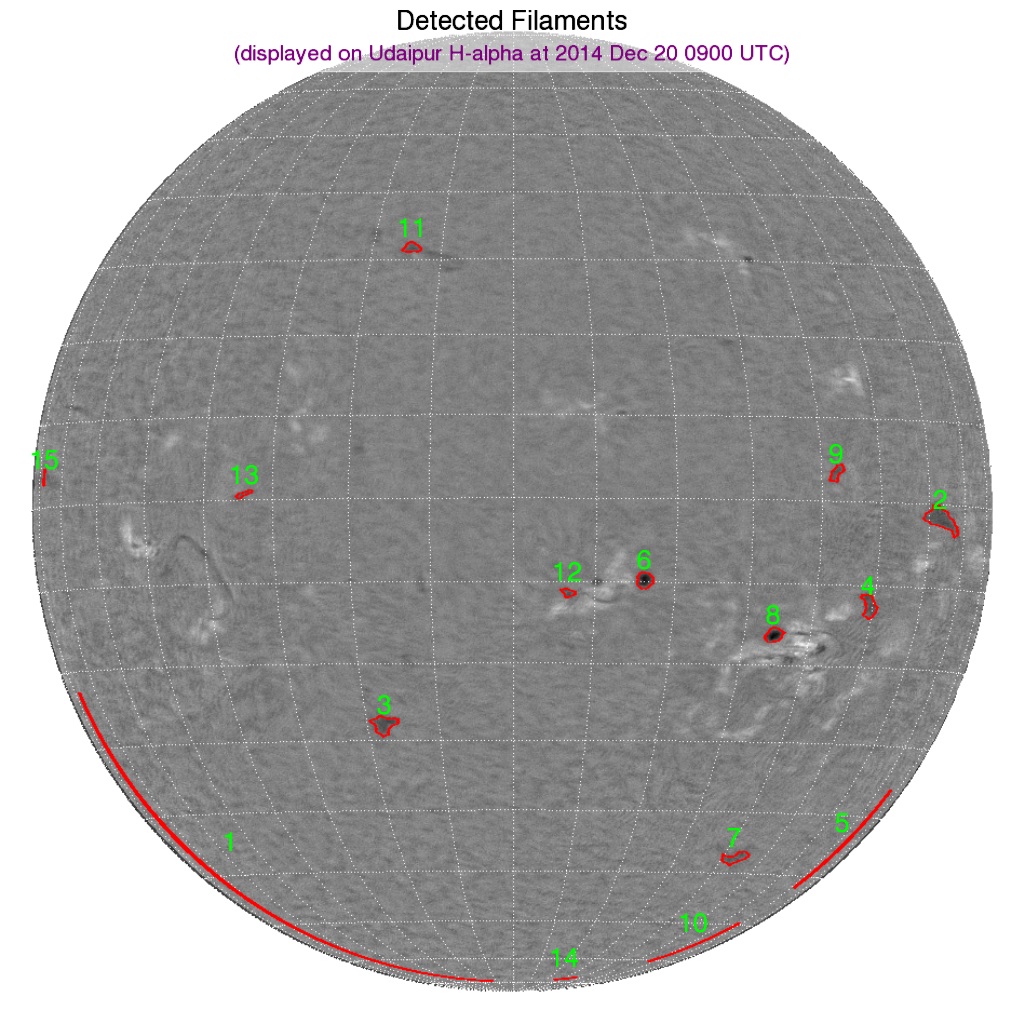
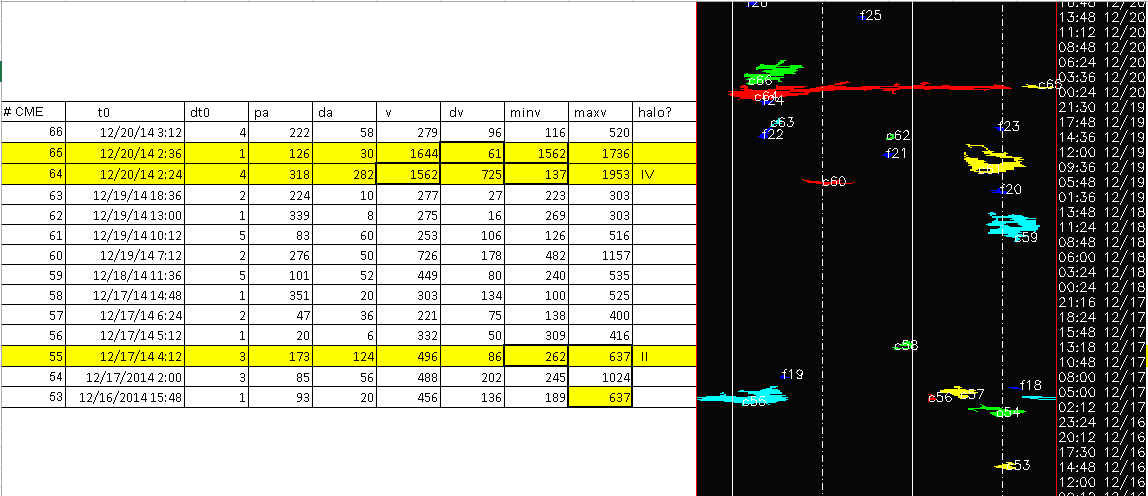






No comments:
Post a Comment